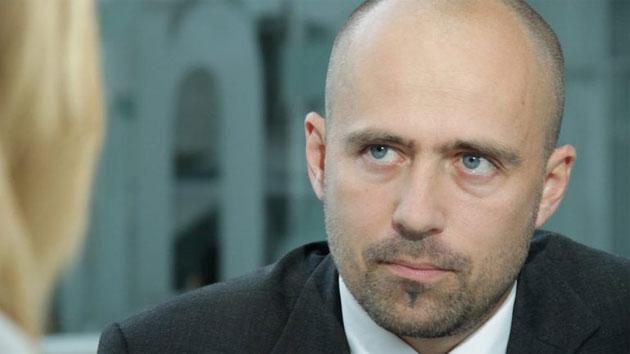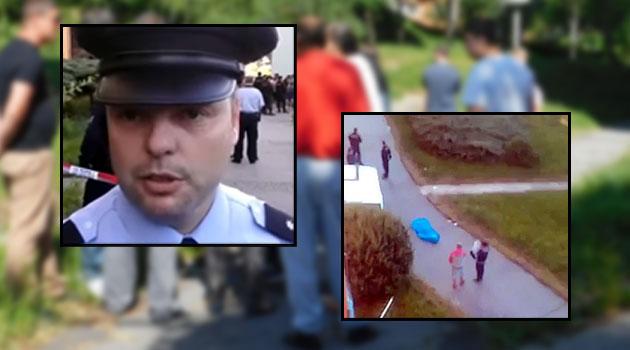Commentary on shooting of Romani man in Chomutov: How many more murder victims before the state learns how to respond?

A young Romani man was murdered during the early morning hours of Saturday on Jirkovská Street in Chomutov, Czech Republic. A non-Romani man shot him dead with a legally licensed weapon, bringing to an end an argument taking place in front of the apartment building where he had been sleeping.
Immediately afterward that Saturday morning, police should have issued a statement like this: “Police are investigating the shooting in Chomutov as an aggravated felony. One of the versions being investigated is that the attack was motivated by prejudice. The main priority of the police is now the safety of the bereaved family members of the deceased and all other residents of Jirkovská Street, irrespective of nationality. We ask the media to be respectful of the bereaved family, their friends, neighbors and relatives, and not to escalate the situation by publishing speculations that might inhibit the investigation. It will be necessary to take many witnesses’ statements and to commission various expert assessments as part of the investigation, which may take some time. We ask the bereaved family and the public for their patience.”
The Czech Police did not do that, however, and the customary cycle of events was therefore launched, during which the bereaved family was left unaided (with the exception of the assistance provided by a nonprofit organization!) and subjected to enormous pressure by the media and the public, without the state administration standing up for them or assisting them by explaining the situation. How many more times will people have to die violently here before the public administration learns 1) how to respond to such catastrophes and 2) most importantly, how to prevent them?
Such reticence to respond is to be expected – all of the responsible state units are concerned that such a death might ignite public unrest. They wait to see how the situation develops.
Once the (acutely) bereaved family has been overwhelmed while others (mainly the media) have lost their minds speculating, the administration relaxes and moves on. This is not the way to deal with such incidents, however – it paves the way for other, similarly tragic occurrences that give rise to more such consequences, which will culminate with an even greater intensity in more tragic events, in manifestations of extremism and public unrest, to say nothing of the impacts on the lives of those most directly affected by the death.
Hate violence
To begin with, it is necessary to clearly state that the likelihood that such an incident is one of hate violence, i.e., an attack motivated by a grudge connected with the victim’s actual or assumed opinions, position or race, is so high that the police and other public administration units must approach such incidents this way. Even if during the investigation it is later demonstrated that the reason for the killing was not hatred, at this point it does appear to be the case, and such appearances are the basis for the immediate reactions of all those affected by such tragedies or those who live near them.
In the immediate aftermath of such an incident, it does not matter to what degree the perpetrator is eventually found to have been justified in taking such action, or to what the degree the victim is to blame (for example, by disturbing nighttime quiet or attacking somebody else so that the perpetrator’s motivation was to defend them). All of that is a matter for the police investigation and for the courts to address by fair sentencing.
Such concerns cannot be allowed to obscure the important fact of the likelihood of such an incident having been a bias crime. The public administration (the authorities, municipalities and police) must respond correctly and precisely in such cases, not just to resolve them properly on behalf of all affected, but also to prevent further escalation.
Once again, that is not how the authorities are responding here. The eyewitnesses to such incidents, including children, are not receiving the immediate support they should be given by a (police) psychologist.
The child welfare authorities have announced that they soonest they can visit the children affected by this incident is five days later. Meanwhile the trauma in those families is so thick you could cut it with a knife.
In this case, the police commented on the murder briefly and neutrally, but during the spontaneous mourning assembly at the scene of the death, they taped off the area and posted armed officers to guard it. They then only allowed small groups of people to visit the spot to mourn.
That is the opposite approach to what should be done immediately after such an incident. The friends, loved ones, and all neighbors of the victim need to hear that the police are prepared to protect them from further potential attack and from escalation of conflicts.
These people do not need to fear the police themselves. When that is the case, they are left desperately alone and unprotected (and we cannot ignore the necessary support for those who know the perpetrator as well, who end up in a very ostracized position during such conflicts between groups).
Nobody’s talking…
The silence of the Mayor of Chomutov and the town leadership is also wrong. They, too, should go and offer immediate aid to the victims (psychological assistance, social services) who are residents of their town.
They should demonstrate that they are taking an interest in the entire situation and that within the realm of their competences they will contribute to resolving it. They should communicate about it with the public, aid their comprehension of the situation and address it together with them.
This is important. The local authority is the closest body for communication with all other public administration bodies tasked with playing some role in such cases.
For that reason, it would be good if the local authority would step into the role of coordinator and aid with arranging all that is necessary locally. They could also avert escalation inside the town and tensions among the groups of people who identify either with the perpetrator of the murder or with the victim.
Last but not least, it is local authorities who will receive any eventual announcements of assemblies being held in response to the incident. They must have a very good understanding of why such a gathering is happening (e.g., whether to honor the memory of the victim or to stir up potential conflict) and they should either aid with the correct performance of such a gathering or, if there is sufficient reason, they should ban it.
Municipalities cannot wait for (potential) conflicts to disappear on their own. They must moderate them with the effective assistance of the police.
This is a damned difficult role to play – for the police, the town leadership, and the specialists at the scene – not just for psychologists and social workers, but also for the teachers in the schools to which the children who have witnessed a murder (!) will be going perhaps the very next day. If they do not deal with this role well, it is not actually appropriate to abuse them for it.
It is appropriate to ask what has led them to behave as they have. It is also appropriate to provide them services so they will know how to do this better next time.
… not even the Agency for Social Inclusion, which should be the first to speak up
The Agency for Social Inclusion also exists here for such purposes. However, currently the Agency is acting as if this situation does not concern it.
Despite the fact that the Agency works in Chomutov and is designing big projects on social inclusion for the town, it is now silent. Just one year ago the Agency coordinated and paid for a training for police officers in Chomutov about how to proceed in hate crime cases and how to communicate properly with the public during them.
How is it possible that the Agency has not yet expressed its view of the entire situation and not yet aided the municipality and police with their complicated tasks? Especially when it has been established for that purpose as a Government body and is meant to play one of the important roles during such crisis situations with respect to the public?
Achieving a proper resolution to the aftermath of Saturday’s murder many months from now should not be the end of the matter. On the contrary, it should just be the beginning.
The next step should be the systematic prevention of the repetition of such incidents. Besides properly assessing the tragedy that has just happened, there is no way to undertake such prevention other than by instituting functional, systematic social inclusion, the only option for preventing such crises.
First published by the author on his blog on Aktualne.cz.
